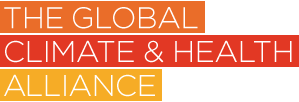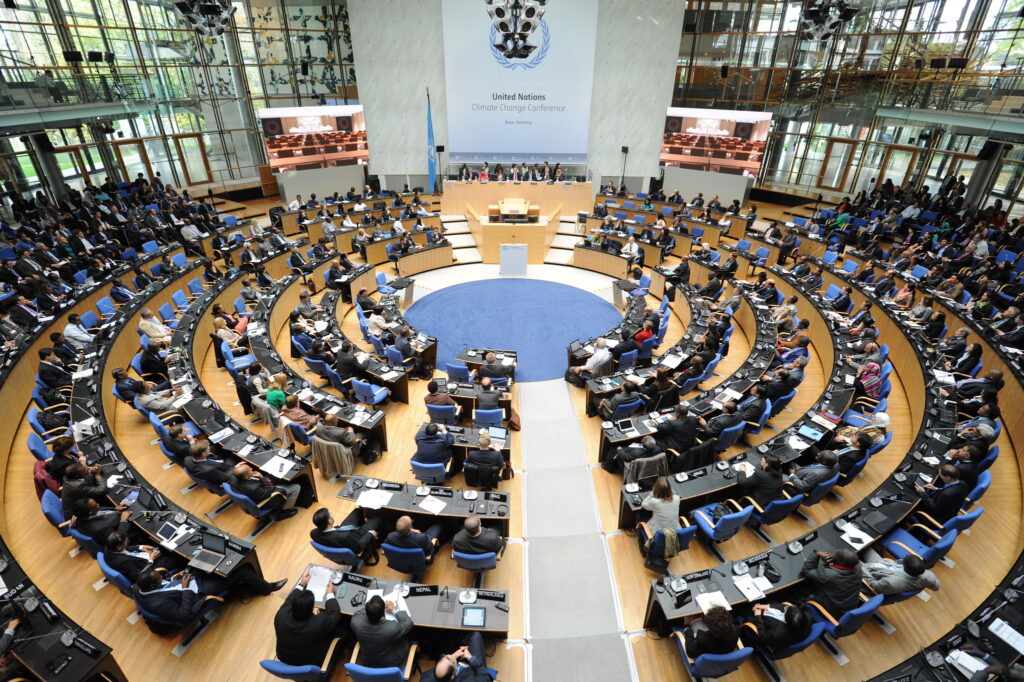Bonn, 3 June 2024:- As the midyear UN Climate Change Conference opens today in Bonn, the Global Climate and Health Alliance is calling on governments to focus on health and health equity, as a spur to motivate significant progress on how the commitments made during last year’s COP28 negotiations will be delivered.
SB 60 is an opportunity for governments to move to action in delivering on the COP28 call to transition away from fossil fuels; to define a path to track progress on adaptation in healthcare and other health-determining sectors; and consider how to ensure that “loss and damage” including health impacts are addressed. These transitions require substantial investment to support climate action in low and middle income countries, so governments in Bonn must also make progress towards agreeing a new climate finance target, called the New Collective Quantified Goal, by COP29 in November 2024.
“Current national policies on greenhouse gas reduction have us on a pathway to nearly three degrees of warming. Those suffering the consequences of the failure to address climate change end up in our clinics, hospitals and health systems, as communities face extreme heat, flooding, drought and crop loss, and air pollution. It is imperative that countries deliver updated National Determined Contributions (NDCs) that align with the actions needed to protect and promote health”, said Dr Jeni Miller, Executive Director of the Global Climate and Health Alliance.
The 60th session of the Subsidiary Bodies of the United Nations Framework Convention on Climate Change (SB 60, UNFCCC), runs from June 3-13, with the issue of climate finance high on the agenda. The conference follows last week’s World Health Assembly (WHA 77) in Geneva, where World Health Organization (WHO) member states adopted the first resolution on climate and health in fifteen years, recognising that climate change is a dangerous threat to global public health, and proposing global action on climate to protect and promote health. With replenishments due for major global health funds, finance was also a key topic of discussion in high profile side events during WHA 77.
“The COP28 UAE Declaration on Climate and Health was the moment when health finally surged to the forefront of climate talks, and the World Health Assembly built on this momentum with the WHA resolution on Climate Change and Health being adopted by consensus by 194 national governments. This week in Bonn, as governments prepare for COP29 in Baku, we want to see this momentum accelerate”, continued Miller. “For decades, climate and health fell between the cracks of national intergovernmental processes. Now health must become a keystone of UN climate negotiations. As this is the first UNFCCC meeting since the COP28 declaration, countries must demonstrate that they are serious about health, and how they plan to follow through on the commitments they have made to their people.”
“Governments have a key opportunity to take the next step on these commitments, by integrating health considerations into the updates of their Nationally Determined Contributions, due in 2025”, said Jess Beagley, Policy Lead at the Global Climate and Health Alliance. “NDCs are the national commitment each country is required to develop under the Paris Agreement, and which they are expected to update every five years. By integrating health considerations into their enhanced NDCs due in 2025, national governments can immediately begin to codify, in their national climate plans, the commitments made over the past several months, and can save lives by reducing air pollution, strengthening their health systems, coordinating across government agencies, and can strengthen economic well being by ensuring healthier, more resilient populations.”
“Countries must also take urgent action to address the leading drivers of climate change and its health impacts. This must start with ending all dependence on fossil fuels, and financing actions to build just and resilient societies that protect people from the accelerating threats of the climate crisis”, said Beagley. “Governments must make decisions based on integrity, uncontaminated by the disinformation from fossil fuel, plastics, big food, and other industries. It’s time for big polluters to pay up and address the harms they have caused.”
“Despite limited resources and severe lack of funding, many low- and middle income developing countries are already taking action, from SIDS (Small Island Developing States) that are decarbonizing their economies, to countries such as Malawi, which has effectively coordinated across departments of government to respond to severe cholera outbreaks following extreme storms and flooding”, added Beagley. “However, without much needed support there is a limit to what low income countries can do.”
“Without rapidly scaled climate finance, less wealthy countries will be limited in their ability to take action – with grave costs to human health. Finance will be a major issue on the COP29 agenda, and it is essential that governments lay the groundwork for positive progress on finance now, during SB60,” said Beagley. “The current global financial system – including climate finance – does not serve the populations it ostensibly seeks to protect and must be restructured. Climate change is impacting people’s health now, and low income countries need and indeed deserve financial support to prepare for and respond to these impacts of a problem they did little to cause”.
ENDS
Notes:
2023 Healthy NDC Scorecard
https://climateandhealthalliance.org/initiatives/healthy-ndcs/ndc-scorecards/#:~:text=The%20GCHA%20Healthy%20NDCs%20Scorecard,the%20abundant%20linkages%20with%20health.
Contact
Dave Walsh, Communications Advisor, Global Climate and Health Alliance, [email protected], +34 691 826 764
About GCHA
The Global Climate and Health Alliance is a consortium of more than 160 health professional and health civil society organizations and networks from around the world addressing climate change. We are united by a shared vision of an equitable, sustainable future, in which the health impacts of climate change are minimized, and the health co-benefits of climate change mitigation are maximised.
Find out more: https://climateandhealthalliance.org/about/

